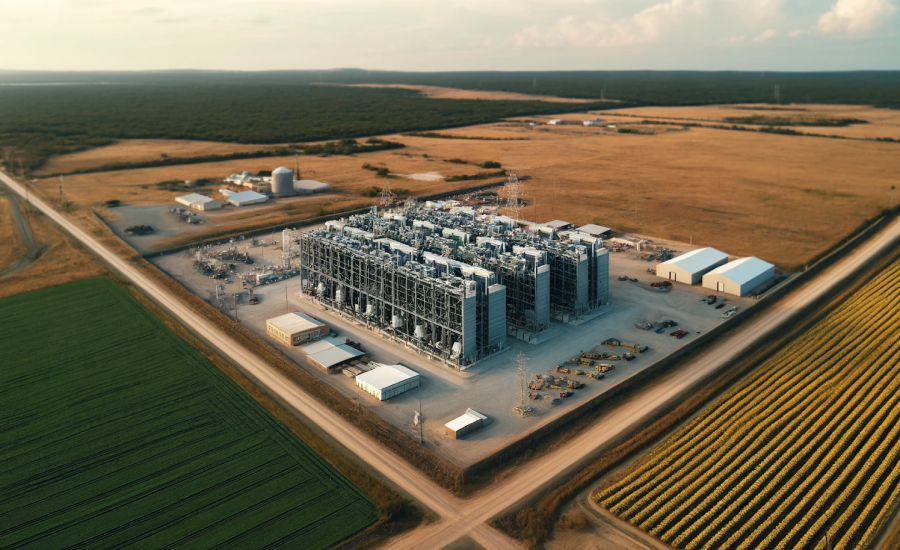Introduction
In recent years, the cryptocurrency boom has seen Bitcoin mining operations spring up across various parts of the world. Texas, known for its vast open spaces and relatively affordable energy, has become a hotspot for these operations. While this influx of Bitcoin miners has brought economic benefits, it has also caused significant disruptions to rural Texas communities. This article explores the various impacts of Bitcoin mining on these areas, highlighting both the benefits and the challenges.
The Rise Of Bitcoin Mining In Texas
Bitcoin mining is the process of validating and recording transactions on the Bitcoin blockchain. This process requires substantial computational power and energy, leading many mining companies to seek locations with affordable electricity. Texas, with its deregulated energy market and abundance of renewable energy sources, has become an attractive destination for these operations.
Over the past few years, several large Bitcoin mining facilities have been established in rural parts of Texas. These operations promise economic benefits, such as job creation and increased local revenues. However, the reality for many residents has been far more complex and challenging.
Economic Impact: Boon or Burden?
On the surface, Bitcoin mining operations appear to offer economic opportunities to rural communities. Companies often tout job creation and infrastructure investments as key benefits. In some cases, local governments have welcomed these operations, hoping to revitalize struggling economies.
However, the number of jobs created by these facilities is often relatively small compared to their scale and the disruptions they cause. Bitcoin mining operations are highly automated, requiring fewer employees than traditional industries. Additionally, the jobs created are often highly specialized, which may not align with the skills of the local workforce.
Moreover, the influx of mining companies can lead to increased competition for resources. In areas where water is scarce, for example, mining operations can exacerbate existing shortages, leading to conflicts with local agricultural industries.
Environmental Concerns: Energy Consumption And Pollution
One of the most significant concerns surrounding Bitcoin mining is its environmental impact. The process is energy-intensive, and the large-scale operations in Texas consume vast amounts of electricity. This increased demand can strain local power grids, leading to higher energy costs for residents and increased greenhouse gas emissions if the energy is sourced from non-renewable sources.
In rural Texas, where many communities rely on agriculture and natural resources, the environmental impact of Bitcoin mining is particularly concerning. The noise and air pollution generated by mining operations can affect the health and well-being of residents, as well as the local wildlife.
Additionally, the infrastructure required to support these operations, such as power lines and cooling systems, can disrupt local ecosystems. This can lead to long-term environmental degradation, impacting the livelihoods of those who depend on the land.
Social And Community Disruption
The arrival of Bitcoin mining operations in rural communities often brings significant social changes. The influx of workers and machinery can disrupt the quiet, close-knit nature of these areas. Residents have reported increased noise pollution, light pollution, and general disruption to their daily lives.
In some cases, the rapid growth of mining operations has led to conflicts between residents and mining companies. Issues such as property rights, zoning laws, and the use of public resources have become contentious, leading to legal battles and community divisions.
Furthermore, the presence of large mining operations can change the character of rural communities. The industrial nature of these facilities contrasts sharply with the agricultural and residential land uses typical of these areas, leading to a sense of loss and displacement among long-time residents.
Conclusion
The expansion of Bitcoin mining in rural Texas highlights the complex interplay between economic development and community well-being. While these operations can bring financial benefits, they also pose significant environmental and social challenges. For rural communities, finding a balance between embracing new industries and preserving their way of life is crucial.
Local governments and community leaders must work together to ensure that the benefits of Bitcoin mining are realized without compromising the health, environment, and social fabric of their communities. This may involve implementing stricter regulations on mining operations, investing in renewable energy sources, and fostering open dialogue between residents and companies.
As the cryptocurrency industry continues to grow, the experiences of rural Texas communities serve as an important case study in managing the impacts of technological advancement on traditional ways of life.



